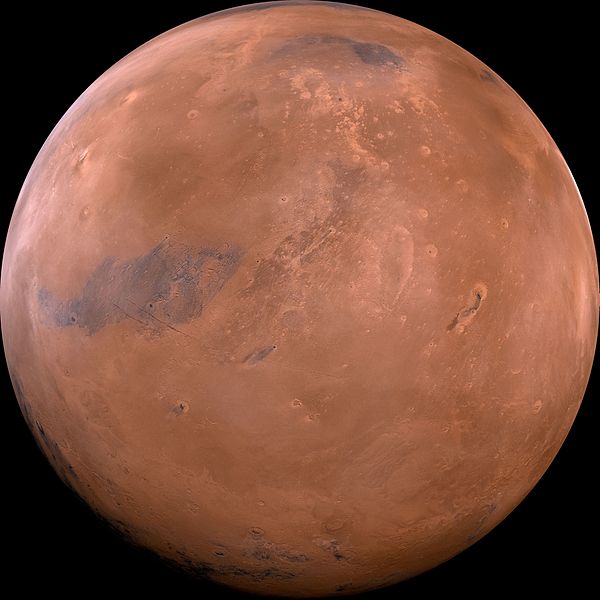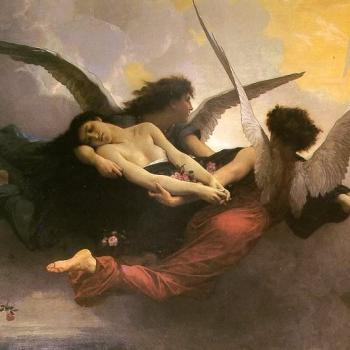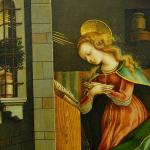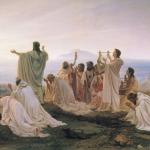
(Wikimedia Commons; click to enlarge.)
David French, for whom I have great respect and with whom I typically agree — he and his wife even headed up “Evangelicals for Mitt” during both the 2008 and 2012 primary and general election seasons — says “No”:
http://www.nationalreview.com/article/428763/christians-muslims-same-god-wheaton-college
He’s wrong.
Francis Beckwith, who has a lengthy history of sharp criticisms of Mormonism, says “Yes”:
http://www.thecatholicthing.org/2015/12/17/do-muslims-and-christians-worship-the-same-god/
Professor Beckwith is right on this question. As is Pope Francis. As are many other theologians and scholars.
I’ll dispose of the most obviously false argument immediately, one that, to his credit, Mr. French doesn’t make: Some in the West mistakenly believe that Allah is the name of a foreign deity like Zeus or Apollo or Ahriman, peculiar to Muslims and definitely not referring to the God worshiped by Christians. I’ve written on this here and here.
I have to admit to being puzzled by David French’s citation of the Protestant theologian R. C. Sproul: “To Muslims, god ‘is a single person, transcendent. The God Christians worship, on the other hand, is the maker of heaven and earth. He is one being and transcendent.'”
But the Qur’an, too, portrays God as “the maker of heaven and earth.” I haven’t counted, but I’m guessing that he’s described that way at least a hundred times in the text. He did it in six days. He planted a garden and put Adam and Eve in it. And so forth. And, according to Islamic theology, God is every bit as “transcendent” as Christians have ever made him out to be, if not far more so.
But the difference that French and his sources take to be the crucial point is that, in Islam, God is “one,” whereas in mainstream Christianity he’s “triune” — somehow simultaneously one single God in the three persons of Father, Son, and Holy Spirit.
Well, of course, that is a difference, and no small one.
And deciding when two views of x, or two ways of doing y, have diverged widely enough to have created two distinct x’s or two separate y’s is always a judgment call. When, exactly, did the Latin of the Iberian Peninsula cease to be Latin? When did that subsequent language become Spanish and Portuguese? Precisely when, in evolutionary biology, does a new species emerge? Is Swiss German a different language than standard German, or is it just a dialect of (and within) German? On what date did Dutch cease to be a German dialect and become its own language? If John has a beard, does it cease to be a beard if Jane plucks out a hair? How about ten hairs? How about a hundred? A thousand? Exactly when can it be said that John no longer has a beard?
I contend, though — and I’m in excellent company — that the similarities between the Muslim and Christian conceptions of God are still far and away sufficient to view them as referring to the same being. And I might ask Mr. French whether he believes that Jews and Christians worship different Gods. Because Jews no more believe in a Trinity of Father, Son, and Holy Spirit than Muslims do. (As a matter of fact, Muslims have a far, far more positive view of Jesus than Judaism has historically had.) “Hear, O Israel,” says the famous Hebrew shema. The LORD our God is one LORD” (Deuteronomy 6:4). I would be surprised to hear Mr. French say that Jews worship an altogether different God than Christians do, but perhaps that is his view.
Posted from Salt Lake City, Utah











